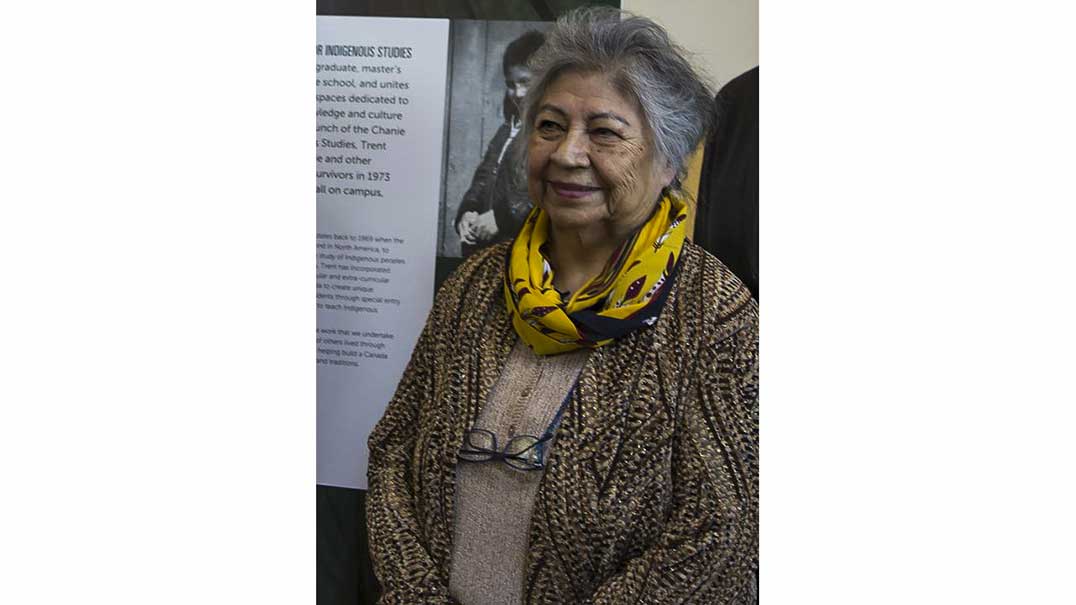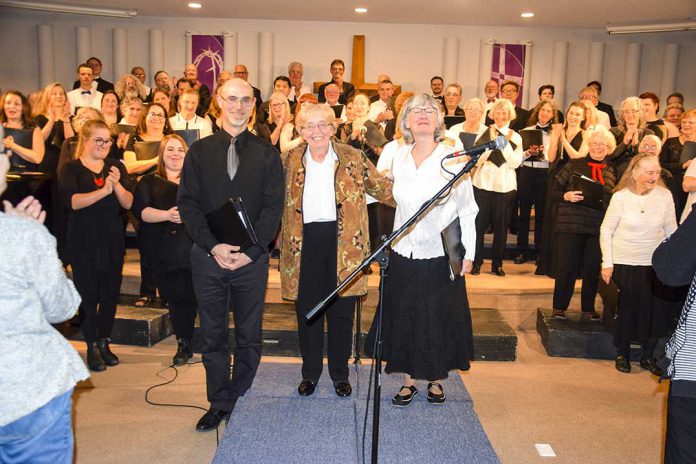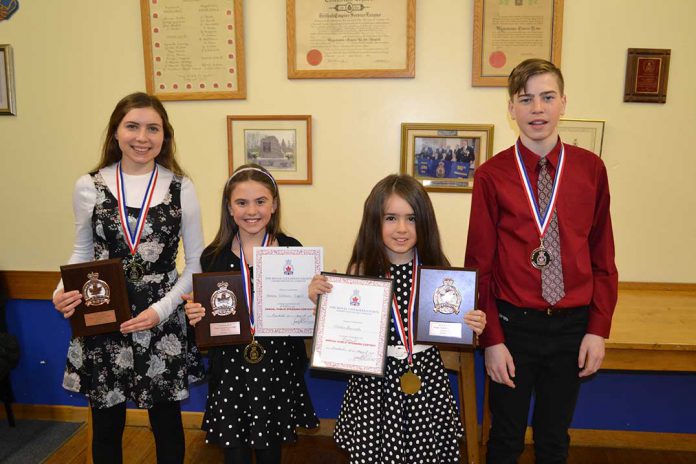PETERBOROUGH—Despite being yanked from the bosom of her family as a six-year-old child and being sent to St. Joseph’s residential school in Spanish, Trent University professor and Wiikwemkoong expatriate Shirley Ida Williams has managed to hold onto her language. On March 22, Ms. Williams launched a book that details her memories of that traumatic period in her life during a joint launch of a short film by Alexandre (Sacha) Trudeau, younger brother of the current prime minister.
Both Mr. Trudeau’s movie ‘Wiisaapte’ (Bitter Smoke) and Dr. Williams’ book ‘Shoolee: The Early Years’ focus on the preservation of Indigenous language.
“It’s about a little girl taken from her family,” said Dr. Williams when contacted by The Expositor. “I was born and raised in South Bay in Wiikwemkoong.” She left the residential school at age 16 and tried to return to her home community, but needed to find work to support herself. “I worked at the Little Current hospital but there wasn’t much opportunity there, so I went back to school for adult education.” She obtained her B.A. and went on to live in Toronto from 1959 until 1972. She had one child, a daughter, and adopted two boys (including well-known powwow MC Chris ‘The Pleasant’ Pheasant).
“I came back home to look after my parents,” she recalled. She now lives in Peterborough and shared her time teaching at Trent University and Lakehead University in the summer until she retired in the summer of 2004.
Dr. Williams is now a professor emeritus in the Chanie Wenjack School for Indigenous Studies at Trent University.
Cited as a tireless advocate for the language, Dr. Williams has been credited with developing the double vowel orthography, which is an important tool assisting those who want to learn the language, as well as supporting its implementation and use throughout Anishinabek territories.
She has written a number of books, including an Ojibwe thesaurus and ‘Shoolee: the Early Years’ is part one of a planned trilogy.
‘Shoolee: the Early Years’ is “how I learned from my parents and the elders about the land, plants water and animals, before I was taken away from my family and sent to St. Joseph’s residential school,” explained Dr. Williams.
“Storytelling is an important part of our culture and my book continues that way of teaching by telling stories of my childhood,” said Dr. Williams. “It is a large undertaking to record and teach our language so others can speak and keep it alive.” Large undertaking is, in itself, something of an understatement. “I worked on it for six years,” she said.

In order to add to the survival of Anishinaabemowin, her book is written in both the language and English, bridging those two solitudes.
Dr. Williams was a critical resource for Mr. Trudeau’s short film, the first foray of the filmmaker known more for his documentary work.
‘Wiisaapte’ (Bitter Smoke) channels the legend of the Windigo from Anishnaabe lore—a horrendous monster that rises up in times of famine with an insatiable lust for human flesh. Dr. Williams worked closely with Mr. Trudeau to align the dialogue into the Anishinaabemowin that was current during the era of the fur trade and helped to coach the actors on proper pronunciation.
“According to writer and language keeper Basil Johnston, the Windigo stories are cautionary tales, meant to warn people against greed and remind them of their responsibilities to each other for survival,” said Mr. Trudeau while in conversation with Trent’s media department. “I think this old message is still important.”
The joint book and movie launch were part of the 50th anniversary celebrations at Trent University.





